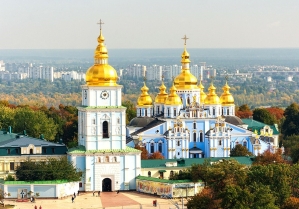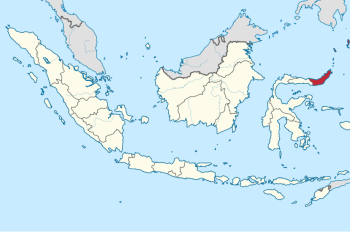The bruised body of a Ukrainian priest who was detained by Russian occupation forces turned up on a village street on Thursday (Feb. 15), with an unconfirmed report of a bullet wound to the head, according to watchdog group Forum 18.
The Rev. Stepan Podolchak, 59, of the Orthodox Church of Ukraine, disappeared on Feb. 13 in the Ukrainian village of Kalanchak after Russian occupation forces took him away for questioning in his bare feet with a bag over his head. The priest had chosen to remain with his church after Russians invaded the village in southern Skadovsk District of Kherson Region in early 2022.

Podolchak’s battered body was taken to the morgue after a passer-by found it, and a morgue staff member phoned his shocked wife to ask her to identify it. His family buried the priest’s body in Kalanchak on Sunday (Feb. 18).
“Today it became known that the occupiers tortured the brightest person I was lucky enough to meet in my life!” noted an official from the Kalanchak village military administration in a Facebook post, now operating from Ukrainian-held territory, as reported by the Kyiv Independent. “Stepan Yaroslavovych Podolchak. Faithful to God, pure in soul, honest and fair! Like an angel who came down to Earth! It is impossible to believe and we will never forgive!”
The Rev. Nikodim Kulygin, bishop of the Orthodox Church of Ukraine’s Kherson and Tavria Diocese, accused occupation forces of torturing Podolchak to death, according to Forum 18.
Serhy Danilov, a Kyiv-based anthropologist who supports civil society projects in Kherson, told Forum 18 that responsibility for the priest’s disappearance lay with the Russian Interior Ministry’s Centre for Countering Extremism. He said Podolchak may have faced incarceration in a detention center in the rural settlement of Chaplinka.
Podolchak’s body showed bruising and indicated he was handcuffed, Danilov told Forum 18.
“Fr. Stepan was someone who felt he couldn’t abandon his people,” Danilov reportedly said. “The [Russian] police and FSB repeatedly pressured Fr. Stepan to move to the Moscow Patriarchate. He told them he couldn’t betray his oath and community.”
Unconfirmed reports claimed a bullet wound in the head caused the priest’s death, but the death certificate given to the family stated he died from a heart attack.
Svitlana Fomina, head of the Kalanchak village military administration, believes the priest also suffered torture.
“The Russians tortured him to death,” Fomina told the Kyiv-based Centre for Journalistic Investigations. “He was always pro-Ukrainian, conducted all services in Ukrainian, prayed for Ukraine, even under occupation. Apparently, because of this, the Russians took away the most valuable thing that a person has – life.”
Forum 18 contacted Russian police in Kalanchak on Monday (Feb. 19) to ask for details of the murder investigation. The unnamed duty officer put the phone down after responding, “For a long time this [community] hasn’t existed here and won’t. Forget about it.”
An official at the Russian Investigative Committee of Kherson Region also refused to answer Forum 18’s questions about the death. “Fill in the form on our website,” he said. “We will respond within the required 30 days.”
Forum 18 had asked if an investigation has begun, if a criminal case has opened and whether any arrests were made, via the recommended website.
Podolchak led church services in a half-built construction at the Church of All the Holy Lands in Kalanchak after Russian officials banned his church fellowship from using a rented room in Kalanchak’s House of Culture following the invasion in Spring 2022.
“Fr. Stepan had built the walls and was trying to complete the building,” Danilov informed Forum 18.
The priest and his wife had both children and grandchildren. Originally from Lviv Region in western Ukraine, Podolchak became a priest in 1998 and served the people of Kalanchak for 10 years.
The killing of Podolchak is the latest incident affecting Christian ministers in the Ukrainian war zone. Forum 18 notes that Russian occupiers oppose the Orthodox Church of Ukraine, the Ukrainian Greek Catholic Church and any religious communities with headquarters in Ukrainian government-held areas.
Podolchak faced ongoing pressure to transfer his priesthood from the Orthodox Church of Ukraine to the Moscow Patriarchate Russian Orthodox Church before his death. He refused to comply.
“The [Russian] police and FSB repeatedly pressured Fr. Stepan to move to the Moscow Patriarchate,” Danilov said to Forum 18. “He told them he couldn’t betray his oath and community.”
Russia is obliged to arrest any person suspected of committing torture under its obligations to the United Nations Convention against Torture and Other Cruel, Inhuman or Degrading Treatment or Punishment. This includes an obligation to try such suspects under criminal law, making “these offenses punishable by appropriate penalties which take into account their grave nature.”
Forum 18 stated that this requirement is routinely ignored by Russian authorities, including when torture is reported within the country’s own internationally recognized borders.
Another report by Forum 18 said that a Greek Catholic priest seized from the city of Berdyansk in Ukraine on Nov. 22 is in Russia after an illegal transfer. The Rev. Ivan Levytsky is held in Rostov Region, according to Evhen Zakharov of the Kharkiv Human Rights Protection Group.
His colleague and fellow priest, The Rev. Bohdan Heleta, is still held in Crimea, occupied by Russia. The priests still face alleged criminal charges concerning weapons and explosives supposedly found by occupation forces. Both men are denied contact with their families.





